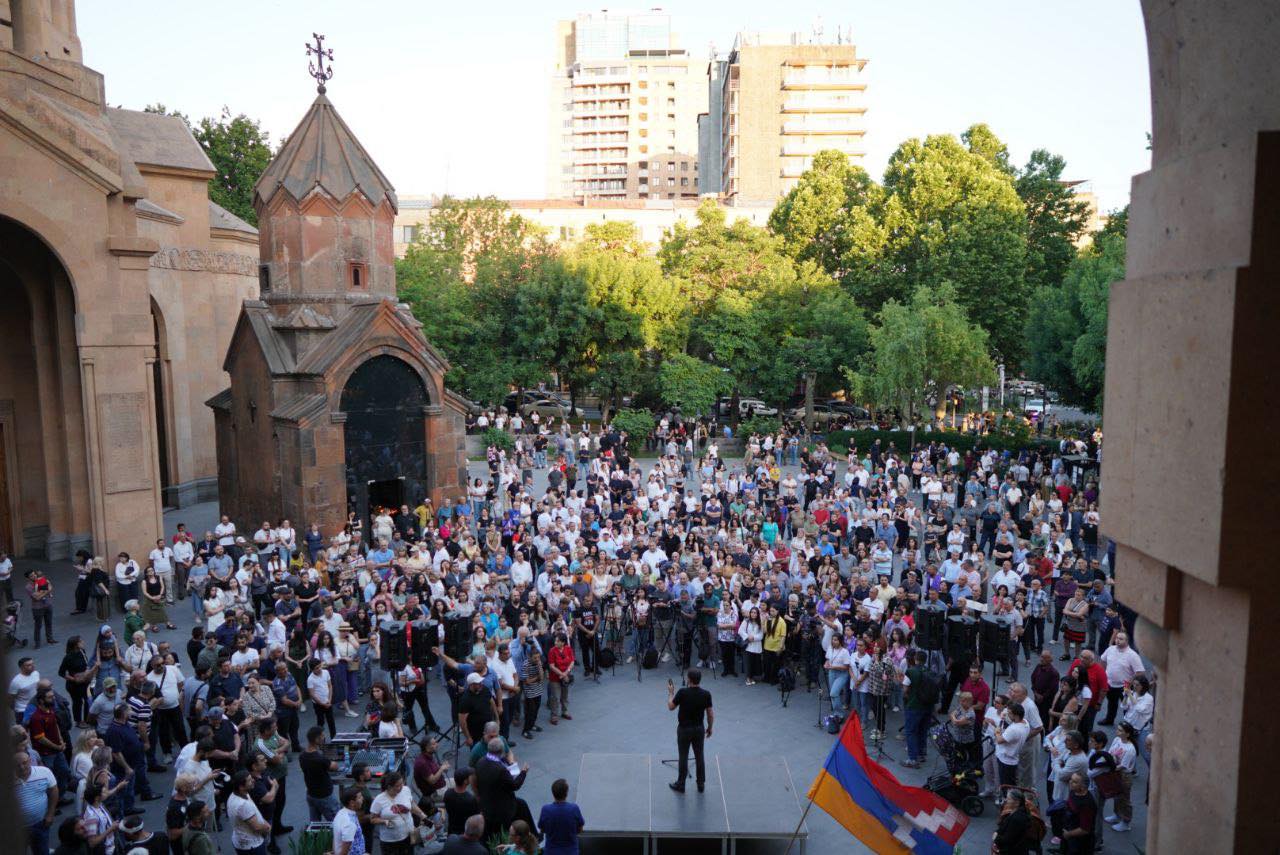
This has proven to be one of the more difficult columns to write. The current events in our global Armenian nation are intersecting with my core values, creating moral dilemmas and difficult choices. Similar to most American-Armenians, we were raised to love our heritage and encouraged to contribute to its prosperity. When Armenia became an independent nation in 1991, it was the fulfillment of a dream for the diaspora and our brethren in the homeland. The early years of the Republic were anything but ideal from an economic and quality of life perspective, as Armenia made the painful transition from an oppressed state to a democracy with a market economy. As domestic policies have matured, national security has dominated the political landscape. I find it painfully ironic that while much of the diaspora advocated for Armenia to align itself with the West, it has also become the most ardent critic of the current government in the homeland. We seem to cling to our independence in the diaspora. The duplicity of the diaspora in the United States, as it advocates for the homeland while publicly attacking its government, raises an interesting question: what is the role of the diaspora as it relates to advocacy? Is it an independent, parallel entity that can add significant value to the homeland while resisting the temptation to act as a remote critic?
The current environment gives us a clear view of this challenge. Most of the advocacy work in this country is viewed as foreign policy content by the United States government and the Republic of Armenia. If we in the diaspora are working on behalf of the homeland, how do we manage disagreements? It is clear that some members of the advocacy community have been harsh critics of Armenia’s policies, and their views have been quite public. My question is: does the U.S. government respect the Armenian community when we lobby for U.S. taxpayer funding for Armenia yet advocate for regime change? I am certain that we are tolerated by the U.S. but perhaps not respected. We are all entitled to our opinions, but activist criticism of the Armenian government from outside of Armenia is troubling. Do we really have a vested interest in the impact of this activism, or are we confusing impact with an attempt to protect our “investment”? It is an important question, because the messaging is mixed. It suggests that we in the diaspora expect some level of influence in the policies of the sovereign Republic of Armenia. We would be wise to separate our emotional bonds as Armenians with the rights of a sovereign republic. One of the most significant obstacles to a stronger relationship between the diaspora and the homeland is the perception that the diaspora seeks to influence Armenia in return for its advocacy. Even if this is merely a perception, public criticism of Armenian politics feeds that perception. How can we in the United States profess our commitment to Armenia when large segments of our advocacy community have an estranged relationship with Armenia’s embassy in Washington? One would think it would be a major area of interface, but the lack of visible interaction tells a different story.
Supporting Armenia and expecting nothing in return is a noble concept, but our willingness to do so is tested in times of disagreement. It is not our responsibility to be remote critics who contribute to instability. We need to pause when we contribute to disunity.
The vast majority of us do not live in Armenia and are not citizens. We have strong and passionate ties, but we must understand the definition of sovereignty. The examples of the Aurora Initiatives and The Future Armenian offer us a different approach. Certainly there are concerns about the state of Armenian society, but these organizations practice a refreshing, forward-thinking approach that avoids the perception of public meddling. What we do for Armenia, we must do for love, which includes disagreeing on policy. Protesters in Armenia are within their rights as citizens, according to Armenia’s laws in a functioning democracy, but legally we are foreigners. The citizens of Armenia have the responsibility to determine the future of their country. This is a very difficult concept for us to embrace, given our compassion for Armenia and our willingness to wantonly express criticism. Supporting Armenia and expecting nothing in return is a noble concept, but our willingness to do so is tested in times of disagreement. It is not our responsibility to be remote critics who contribute to instability. We need to pause when we contribute to disunity. Our enemies are skilled at taking advantage of our weaknesses. The Turks have often targeted the diaspora in an effort to create or exploit discord. We need to have a more strategic mindset and move beyond opinions outside the realm of our responsibility.
Another area in our global domain in dire need of a dose of pragmatism is the “Tavush for the Homeland” movement. What started as, I believe, a sincere response to a very emotional issue along the border of Tavush has evolved into a magnet for every “opposition” group. These groups have little in common with each other, except their opposition to Prime Minister Nikol Pashinyan. While I believe in the right to free expression in a democracy, we must ask ourselves…what is the end point for this campaign? We have a primate of the Armenian Church who launched local protests that transitioned into a march to Yerevan. He has preached nonviolence but has advocated for acts of civil disobedience. The latter can be peaceful but challenge authority and openly push the limits of tolerance. This can lead to troubling circumstances. Anyone leading such public activity grounded in peaceful values has a responsibility to outline a path forward. All we know is that Bagrat Surpazan has stated that he is the opposition candidate for Prime Minister. Why? How? What are his qualifications? As tensions rise, with the opposition forces challenging authority and lines becoming blurred, the protesting leadership should be responsible and tone it down. Armenia does not need internal instability while trying to maintain its sovereignty and national security. It is very easy to criticize, but it would be wise to offer solutions. I have not heard any.
Perhaps the most significant concern is the role of the church, overtly involved in the political process. The Surpazan is leading a political protest with aspirations for governance. Announcing that he has suspended his spiritual responsibilities while maintaining his rights and status as a senior clergyman creates questionable circumstances. The prime minister was duly elected according to the Armenian Constitution. Unless the prime minister voluntarily resigns or there is a mass defection from the ruling Civil Contract majority, the Surpazan’s candidacy is a non-starter. Also, the Archbishop is a dual citizen of Canada (where he was primate) and Armenia. The Armenian Constitution currently bars candidates for prime minister from holding dual citizenship. Bagrat Surpazan also operates with the full blessing of the Catholicos of All Armenians Karekin II. It is well known that the relationship between the church and the government is challenging. The church has a perceived reputation for being corrupt by many and has been strangely silent during the last several years of oppression in Artsakh and border instability. Where was the church when the heroes of Artsakh were being starved, blockaded and deported? There was no visible presence protesting Azeri crimes and supporting Artsakh in their time of need. I love our church, but the support of Holy Etchmiadzin after months of invisibility looks like a shallow power play. The vision of a “non-partisan transitional” government is not a vision or even a functional concept. Who in Armenia with the skills to govern is “non-partisan”? Does anyone really believe that some of the “opposition” forces that have lent support to Bagrat will be satisfied with a “non-partisan” government?

Armenia does not need an escalation of internal conflict. Cooler heads in the opposition need to prevail before this spirals out of control. This is beginning to resemble an amateur and dangerous campaign. It takes much more than protests to govern. Too often critics offer general statements that advocate for reversing public challenges but offer little in terms of a pragmatic direction. Anyone with open criticism should be watching the reaction of Western democracies, Russia, Turkey, Iran and Azerbaijan. At least two of those countries would rather see Armenia depopulated and called “Western Azerbaijan.” Russia will look for any opening to reassert its hegemony in the South Caucasus. While the Armenian government courts Western democracies such as France and the United States, instability can easily halt their support. Each of these countries can seriously impact the sovereignty of Armenia. This is a time when optimizing resources is essential. It is easy to concede nothing when you are not governing and simply have the freedom of opinions. This is why I believe that anyone in opposition should be evaluated on the quality of their solutions. The absence of such is irresponsible.
These are difficult times, and there are no easy answers. The solutions may be revealed sooner if we choose to desist from internal conflict and focus on finding common ground. I have found that power and egos are obstacles, but true patriotism can help us work together. If the Catholicos feels inclined to lead, then he should bring us together. This past week, we remembered those pivotal times in late May 1918 when our civilization hung in the balance. I cannot think of a more inspiring moment from a single leader than Catholicos Gevorg V’s refusal to leave Holy Etchmiadzin as the Turkish armies advanced. Such moments are called miracles. Armenia has always lacked a “loyal opposition” in its political order. Most of the political parties in Armenia hold no seats in the parliament. As a result, opposition forces operate like outsiders, relying on protests and insults to make their voices heard. In a way, it is not very different from the manner in which our Congress has been dysfunctional over the last few decades. In the case of Armenia, the people found the Civil Contract alliance a better alternative than returning to the past. If we respect the institutions of democracy, there must be value in that reality. We need to all take a step back from the edge and think through our actions. How do they help Armenia? Are we contributing to a solution? Do we understand our role in the diaspora?



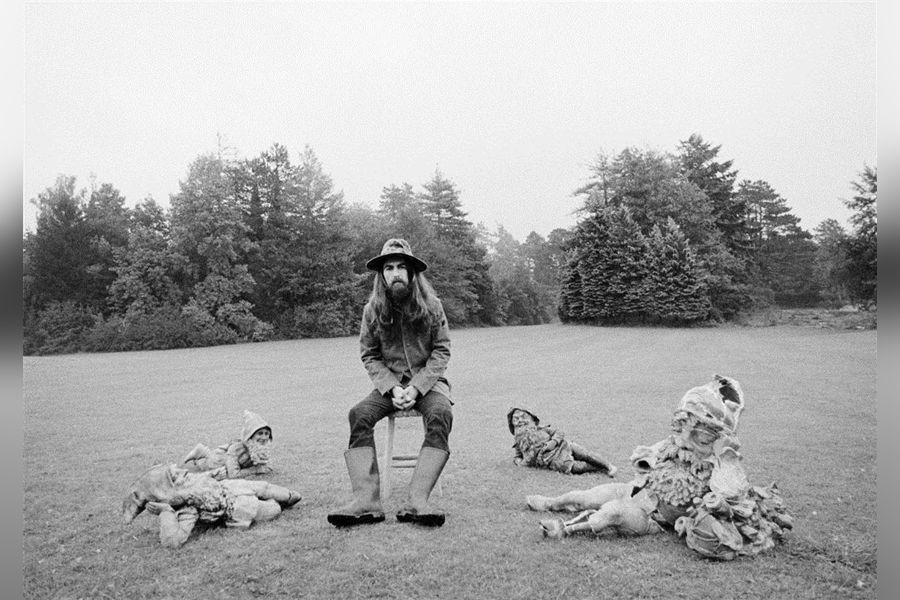
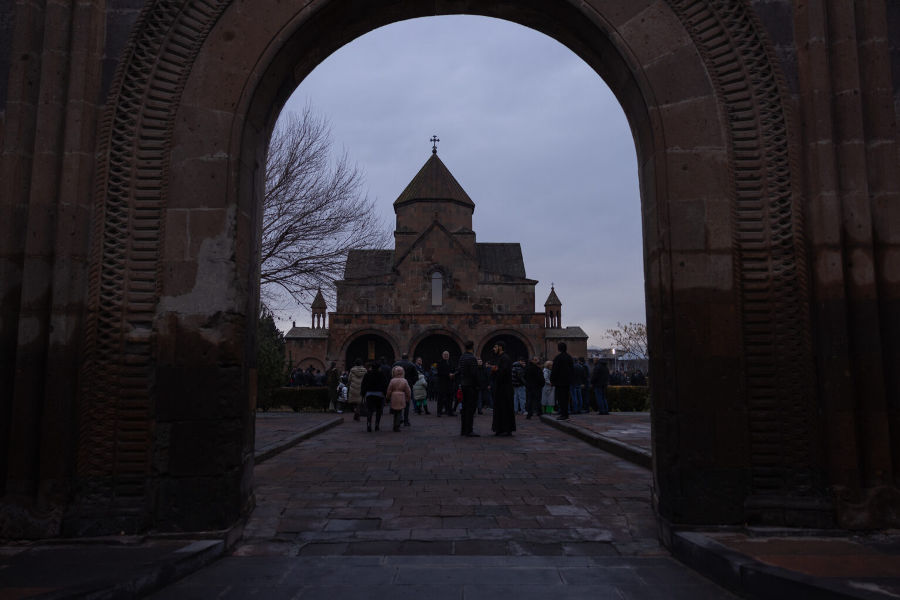
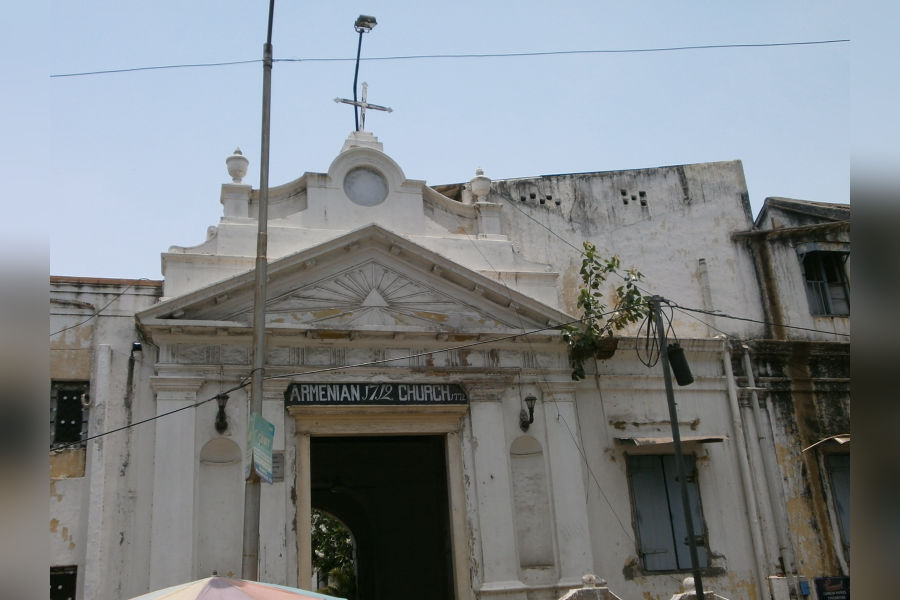
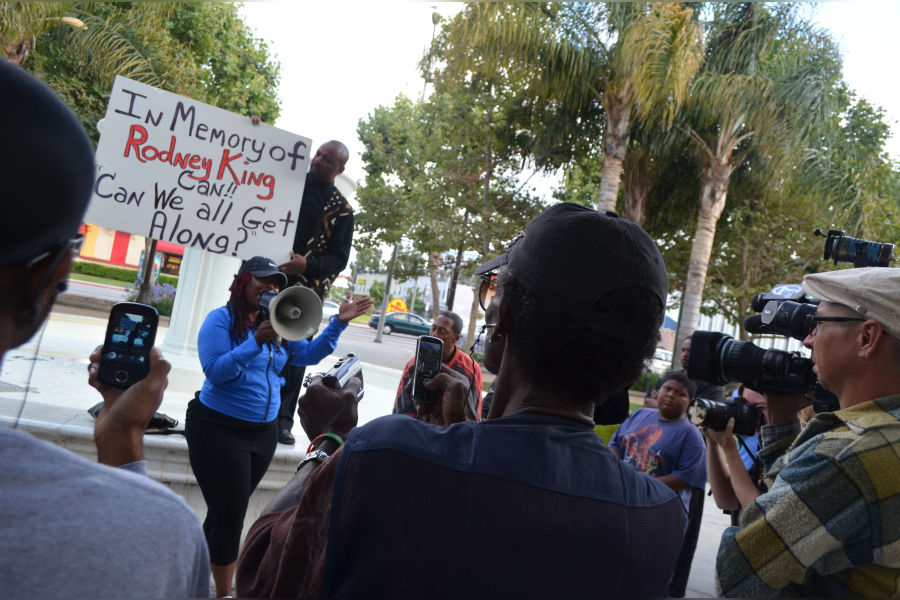

One very well written article that I read for a LONG time, with reasoning & well calibrated responses. Thank you
Vahe
Excellent observations from a level-headed and, more importantly, realist intellectual. I always enjoy Mr. Piligian’s columns as they are rooted in the actual circumstances we find ourselves in. The self-deception and empty nationalistic proclamations of the last three decades have brought us to our knees. It is time we accept those harsh realities, cease from exhibiting our patriotism through words alone, pull up our sleeves and do the work necessary to rebuild our nation.
Mr. Piligian, very well said, thank you. You gave me hope. As you may know Diaspora Armenians will agree with you but don’t know how and where to turn to contribute to the sovereignty of Armenia. Diaspora needs new leadership with new vision to unit Armenians and with one goal in mind to help Armenia as our nation without any terms or expectations.
As you said “Do we understand our role in Diaspora?” If even 50% Armenians understand our role we will be in better place, that is why we need new leadership with new vision.
Mr. Stepan Piligian’s Opinion piece is an apology for Armenia’s trajectory into the abyss under Civil Contract’s suicidal leadership.
If you love your father, you cannot say “it’s my father’s decision, his choice, if he wants to commit euthanasia.”
Only a tiny minority of Armenians in Armenia support handing over lands in Tavush, Armenian military weakness & the Armenian government’s policy of cooperating with Ankara & Baku to deny the Armenian Genocide.
Even if a majority of Armenians supported Civil Contract’s agenda of appeasement towards Baku & Ankara’s hyperaggressive policies, no majority can exploit the concept of democracy to deny the minority and individuals’ rights to live on historic Armenian lands while speaking Armenian & worshipping in Armenians churches. These are the inherent rights of all human beings, to speak their indigenous language and practice their religion without fear of death or torture.
Only a strong Armenian state can protect Armenians’ inherent rights in the region. This is why Armenians formed the Armenian Revolutionary Federation in the late 1800s.
The Armenian government under Nikol Pashinyan has banned Armenian church history from the curriculum, has introduced textbooks that parrot Ankara’s pseudo-historic view of the Armenians as not indigenous to Van, Erebuni and Artsakh.
Civil Contract has also repeated Armenian Genocide Denialists tropes.
These acts and statements are no mere coincidences.
The Diaspora is a crucial factor in preventing Armenia’s military economic and cultural conquest by Turkey & Azerbaijan via the compliant & docile Civil Contract administration.
Pres. Erdogan had stated that the Diaspora must abandon Armenian Genocide recognition as a pre-requisite of Turkish-Armenian normalization.
Civil Contract’s recent statements, requesting that the Diaspora compile a list of the names of 1915 Armenian Genocide victims, legislator & donor Khachatur Sukiasyan’s statement that the Armenian Genocide was instigated by rebellious Armenians, completely comport with Pres. Erdogan’s agenda of military, economic & even cultural subjugation of the Armenians in Armenia and from Artsakh.
This response to Mr. Piligian’s ahistoric and anti-factual opinion ignores Civil Contract’s failure to provide a list of names of who died in the October 2020 war.
Civil Contract has not yet provided an accounting of how & why billions of dollars military equipment was lost and destroyed. The Armenian government has not provided a report to its own citizens or the Diaspora about the reasons why the Armenians Army lost the October 2020 war. Even basic facts about the war, such as whether Stepankert or Yerevan’s supreme military commander was planning Artsakh’s defense, are still secrets 4 years after the worst Armenian defeat since the Battle of Kars in 1920.
As for whether Archbishop Bagrat is the best candidate, it’s true that Archbishop Bagrat is neither an army general or a former high official of any government. He is a man leading a movement to prevent Armenian societal suicide, a suicide that Pan-Turkist extremists in Turkey and Azerbaijan gleefully support.
Armenian Weekly, as an ark that preserves Western Armenian civilization, must balance Mr. Piligian’s columns with a column that supports the Armenian people’s need for liberty and justice that are the fruits of strength and victory.
“This response is to Mr. Piligian’s ahistoric and anti-factual opinion that ignores Civil Contract’s failure to even provide a list of names of who died in the October 2020 war.”
Dear Harutiun, from your passionate letter in response to Mr. Piligian’s article, I can tell you have a deep love for Armenia and its people. However, when such fervent proclamations come from diasporans who are detached from the day-to-day realities faced by those living there, it raises questions about the depth of that patriotism. I don’t know you personally, and I sincerely hope you are not one of those diasporans whose patriotism manifests only through words, and not deeds. Please understand that I do not intend to single you out unfairly. I am simply growing weary of reading impassioned comments from diasporans who contribute little support, yet feel entitled to make grandiose statements. If you would be so kind, I would appreciate if you could share with us some of the concrete steps you have taken in recent years to strengthen Armenia. I eagerly await your response and hope to be pleasantly surprised by evidence of your genuine commitment to the motherland.
Dear Stepan, once again you provide your readers with a sensible analysis of the situation in our Homeland and how the diaspora could react in an appropriate manner. I am so tired of the keyboard warriors who are not willing to come to the Homeland and live here or support and provide constructive responses to critical issues. I saw your article because it is
amongst the must read articles being circulated amongst the Yerevan diaspora community. Thank you for your sharing your wisdom.
Your article Stepan resonated with me. But I would like to point the following. Instead of “duplicity”, I have been using the word “dichotomy” all along, because I believe it better conveys the undertone. Interested readers may consult Merriam–Webster dictionary. However, either use makes the following clear: something is amiss.
Dear Mr Piligian,
Thank you for the candid and true evaluation of the present situation in Armenia.
I am a diaspora Armenian who moved to Armenia years ago, mainly because of the problems that you clearly state in your article. As a diaspora Armenian, although I was active in many charitable works in Armenia, but never allowed myself to officially advocate opposition to the governments. Through my frequent travels to Armenia and contacts with the various strata of the people I realised that through my knowledge of cartography I could be useful here, in Armenia, by helping to disseminate the cartographic truth and facts. Therefore I moved to Armenia and became a citizen in order to be able to participate in the political life of my homeland.
Some diaspora Armenian analysts criticise and advise the government what should be done and issue inciting statements. If such activists are interested in making Armenia a better place, why they do not come and live here and actively take part in the needed transitions?
Many critics of the government in diaspora as well as Armenia base their claims and statements on misguided and false information, without even trying to check the veracity of their statements. These sort of criticism only helps the enemy by trying to weaken Armenia internally.
This is what is happening now, which benefits only our enemies, as well as the previous corrupt oligarchy and its blind followers. The opposition members of the Parliament often boycott the sessions, instead of attending and voicing their concerns, offering possible solutions for the government actions they criticise, thus making their voices heard.
This comes to show that politically, we are yet to understand what democracy is.
I am trying to understand the narrative of this article and all I am getting is that diaspora should not get involved what is happening in Armenia because we are not citizens of Armenia. Moreover, we should help financially without any questions.
Well, this is wrong, and the writer is out of touch from the reality at least, if not influenced by Turkish sources since it’s aliening with Turkish propaganda.
The danger of Armenian government today is that they are taking the country to the age of destruction, everyone sees that in Armenia and diaspora. A government that is not legitimate has no right to do things that impact the country, they failed to deliver their pre-election promises, even worst they did the opposite and that makes them not legitimate.
Now, if we think that Armenia is in danger and in the near future there might not be Armenia as a country, diaspora has all the rights to be part of Armenian politics and say their disagreement to today’s Armenian government. No Armenia no diaspora period.